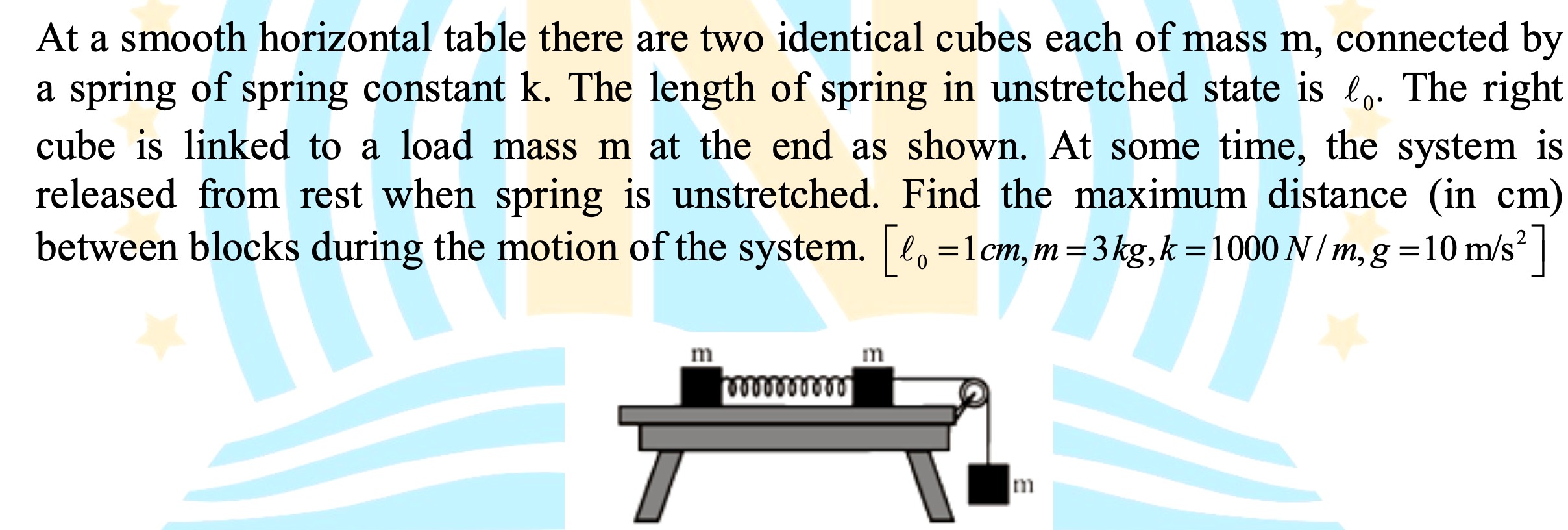Question
Question: At a smooth horizontal table there are two identical cubes each of mass m, connected by a spring of ...
At a smooth horizontal table there are two identical cubes each of mass m, connected by a spring of spring constant k. The length of spring in unstretched state is l0. The right cube is linked to a load mass m at the end as shown. At some time, the system is released from rest when spring is unstretched. Find the maximum distance (in cm) between blocks during the motion of the system. [l0=1cm,m=3kg,k=1000N/m,g=10m/s2]

4 cm
Solution
Solution Explanation:
Let the extension of the spring be
where l0 is the natural length (1 cm).
For the left cube (mass m):
For the right cube, which is pulled by an additional force mg (via the hanging mass):
mx2′′=mg−ku.Subtracting these, the relative acceleration is
u′′=x2′′−x1′′=mmg−ku−ku=mmg−2ku.This gives
u′′+m2ku=g.Define ω2=m2k. The equilibrium (steady state) extension ueq satisfies
m2kueq=g⟹ueq=2kmg.But notice that the system is released from rest with u(0)=0 and u′(0)=0. Its solution is
u(t)=ueq(1−cos(ωt))=2kmg(1−cos(m2kt)).The maximum value of 1−cos(ωt) is 2 (attained when cos(ωt)=−1). Hence the maximum extension is
umax=2kmg×2=kmg.Substitute given values:
umax=10003×10=100030=0.03m=3cm.Thus the maximum distance between the cubes (i.e. the spring’s length) is
l0+umax=1cm+3cm=4cm.